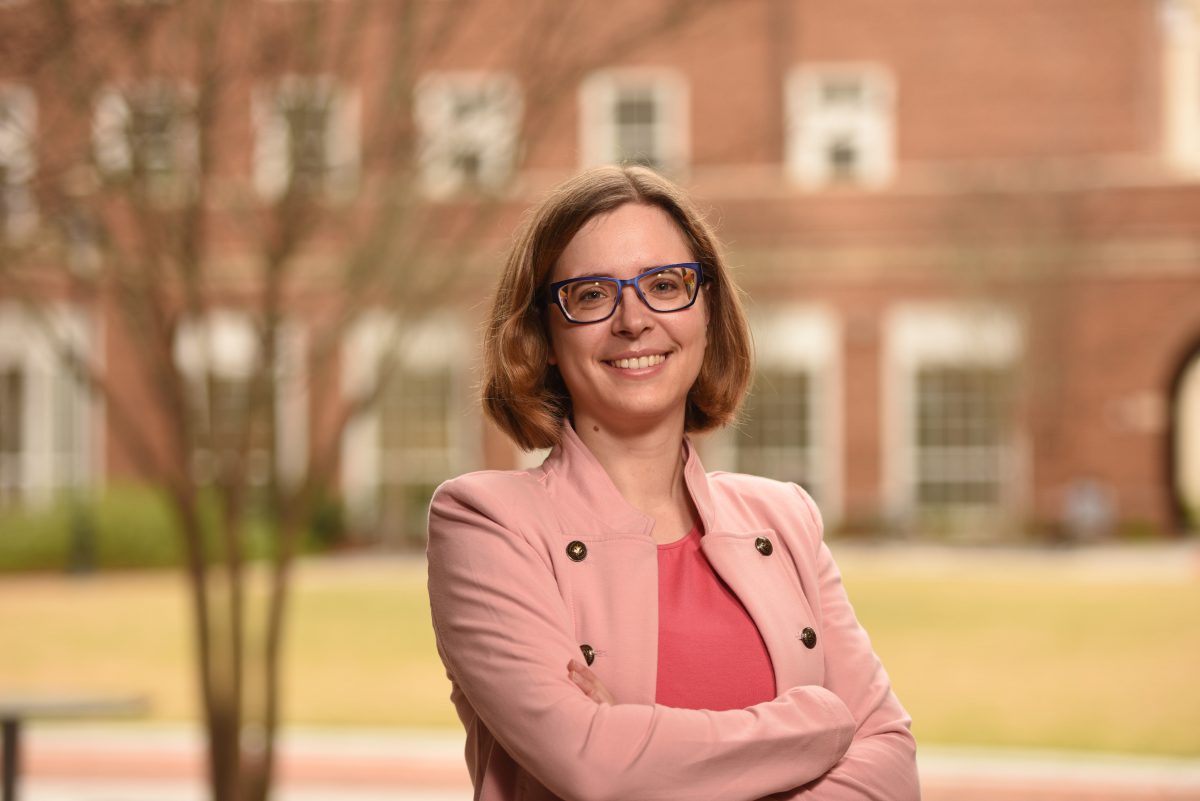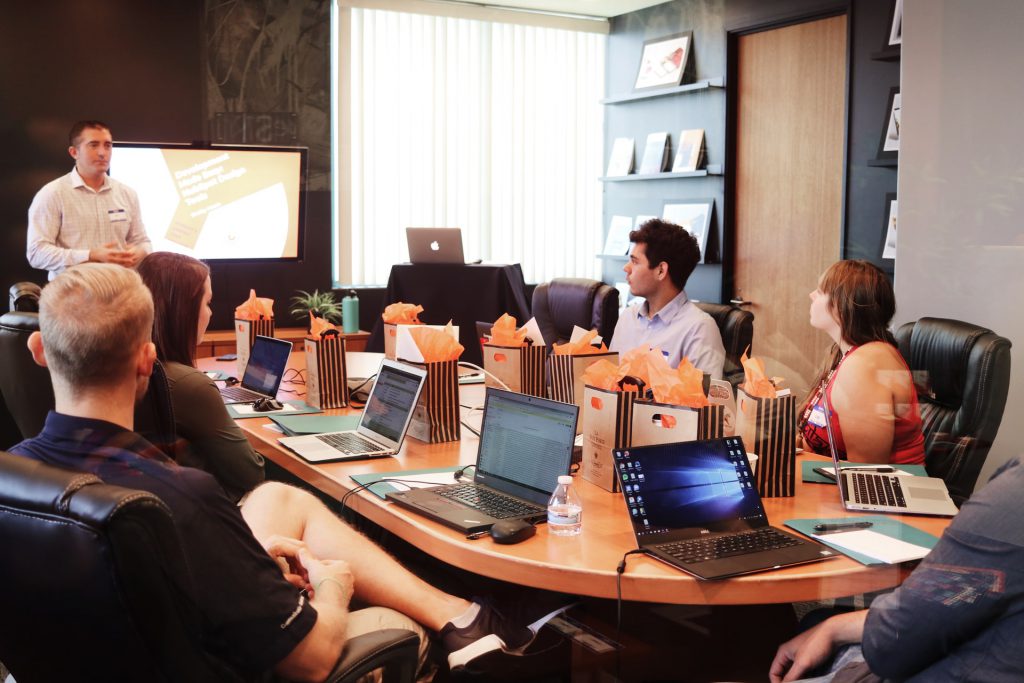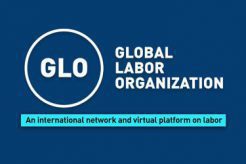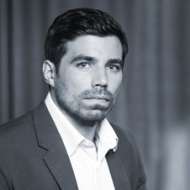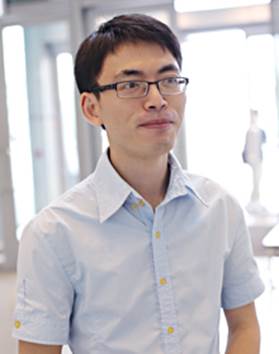“In 1965, a family-reunification policy for admitting immigrants to the United States replaced a system that chose immigrants based on their national origin. With this change, a 40-year hiatus in Asian immigration ended. Today, over three-quarters of US immigrants originate from Asia and Latin America. Two issues that dominate discussions of US immigration policy are the progress of post-reform immigrants and their contributions to the US economy.
This book focuses on the earnings and human capital investment of Asian immigrants to the US after 1965. In addition, it provides a primer on studying immigrant economic assimilation, by explaining economists’ methodology to measure immigrant earnings growth and the challenges with this approach. The book also illustrates strategies to more fully use census data such as how to measure family income and how to use “panel data” that is embedded in the census.
The book is a historical study as well as an extremely timely work from a policy angle. The passage of the 1965 Immigration and Nationality Act set the United States apart among economically developed countries due to the weight given to family unification. Based on analyses by economists—which suggest that the quality of immigrants to the US fell after the 1965 law—policymakers have called for fundamental changes in the US system to align it with the immigration systems of other countries. This book offers an alternative view point by proposing a richer model that incorporates investments in human capital by immigrants and their families. It challenges the conventional model in three ways: First, it views the decline in immigrants’ entry earnings after 1965 as due to investment in human capital, not to permanently lower “quality.” Second, it adds human capital investment and earnings growth after entry to the model. And finally, by taking investments by family members into account, it challenges the policy recommendation that immigrants should be selected for their occupational qualifications rather than family connections.”
Human Capital Investment. A History of Asian Immigrants and Their Family Ties
Authors: Duleep, H., Regets, M., Sanders, S., Wunnava, P.
“The authors attack forcefully an established myth in the US based immigration literature, namely that post-1965 immigrants were of low quality since they came at a time with a policy focus on family unification. They make us aware of the huge impact family investments have had among their studied Asian immigrants on high school attendance rates and other human capital improvements generating the most upwardly mobile among American workers. It seems that the migration history of that period has to be re-written.” (Klaus F. Zimmermann, President Global Labor Organization, Bonn University and UNU-MERIT, Maastricht)

The link to the publisher’s website:
https://www.palgrave.com/us/book/9783030470821#reviews

Mark C. Regets, Seth Sanders, Phanindra V. Wunnava and Harriet Duleep
- Harriet Duleep is Research Professor of Public Policy at the College of William and Mary. She is a Fellow of the Global Labor Organization. Her main areas of research include immigration, the socioeconomic determinants of mortality, discrimination and minority economic status, and women’s labor force behavior.
- Mark Regets is a Senior Fellow at the National Foundation for American Policy; a Fellow at the Global Labor Organization; and a Research Fellow at IZA. He “retired” from the National Science Foundation’s National Center for Science and Engineering Statistics and continues to write on immigration and science labor markets both as separate issues and where they intersect.
- Seth G. Sanders is the Ronald G. Ehrenberg Chair in the Department of Economics at Cornell University. His research focuses on marginalized groups in the U.S. His work has appeared in a wide set of leading journals.
- Phanindra V. Wunnava is the David K. Smith ’42 Chair in Applied Economics at Middlebury College, Middlebury, Vermont, a Research Fellow at IZA, Bonn, Germany, and Fellow at Global Labor Organization. His research appeared in a wide range of scholarly journals.
Related research:
GLO Discussion Paper No. 820: How the Earnings Growth of U.S. Immigrants Was Underestimated – Download PDF by Duleep, Harriet & Liu, Xingfei & Regets, Mark
Forthcoming: Journal of Population Economics
GLO Discussion Paper No. 846: On Immigration and Native Entrepreneurship – Download PDF by Duleep, Harriet & Jaeger, David A. & McHenry, Peter
Interview
GLO: What is wrong with the received wisdom of the economics literature on the earnings of immigrants?

Harriet Duleep: Economists make two conceptual errors in their study of immigrant earnings. They equate earnings with level of human capital and they assume that differences in entry earnings, adjusting for levels of education and experience, measure differences in immigrant quality.
A perspective that permeates our book is that the economic success of immigrants cannot be measured by their initial ability to market their skills. If entry earnings are correlated with any factor that enables or increases human capital investment then immigrant entry earnings measure neither human capital or unmeasured immigrant quality.
Human capital that is not immediately valued in the host-country’s labor market is useful for learning new skills. Immigrants who do not initially earn on par with similarly educated natives provide a flexible source of human capital that supports the ever-changing needs of the U.S. economy. Emphasizing the low entry earnings of the post-1965 immigrants minimizes the depth of their contributions to the U.S. economy.
Also distorted is the measurement of immigrant earnings growth. By using the fixed-cohort-effect method economists commit a statistical design error by assuming that earnings growth rates are constant across year-of-entry cohorts.
Seth Sanders: The received wisdom also ignores interactions among family members. For the groups analyzed in this book, the low adjusted earnings of immigrant men during their initial U.S. years are often partially, or even completely, offset by the earnings of immigrant women.
We also find a large negative effect of husband’s self-employment on wives’ labor force participation. This likely reflects the wife contributing unpaid labor to the family’s business. In fact, whether the husband is self-employed is more important to a woman’s decision to work than whether the husband has been recently unemployed and, for some groups, than having young children at home.
Phanindra Wunnava: The extended family is also ignored. Sibling admissions negatively affect initial earnings but positively affect earnings growth. This suggest that extended family, or being part of a group with high extended-family admissions, aids the human capital investment of individual immigrants. We also find a positive and highly statistically significant relationship between the propensity of individual immigrants to be self-employed and the percent of their cohort who gained admission as siblings. For Asian immigrant men, the effect of sibling admissions on the propensity to be self-employed exceeds the effect of any other variable in our analysis.
GLO: Why are human capital investments the clue?

Mark Regets: When immigrants have problems transferring skills between labor markets—whether because of credentials, language, work processes, or changing their career—they have both lower costs and higher returns to human capital investments. Lower initial wages mean lower opportunity costs. New host-country human capital, valuable in of itself, also helps make their prior skills usable in their new labor market. In addition, the skill of knowing how to learn often transfers more directly than labor market skills. Thus, human capital investment not only makes entry earnings a poor predictor of an immigrant’s labor market success, but creates an inverse relationship between entry earnings and earnings growth.
Harriet Duleep: The human capital investments of immigrants who initially have problems transferring skills impact the U.S. economy. In a recent GLO paper David Jaeger, Peter McHenry, and I took the Immigrant Human Capital Investment (IHCI) model described in this book and viewed it from an employer’s perspective. Immigrants’ willingness to engage in human capital investment makes them a particular asset to entrepreneurs needing a labor force to learn new skills. We find that college-educated immigrants, especially from less-developed countries, are associated with increased entrepreneurship at the state level, a result that persists when we focus on entrepreneurship among natives (rather than immigrants themselves). David Green, in his 1999 Journal of Labor Economics paper, finds that immigration may contribute to a more flexible labor force because immigrants are more occupationally mobile than natives even long after their arrival.
GLO: Why have you chosen Asian immigrants to the US as reference? Strong family connections and high educational ambitions may make them a special group.

Seth Sanders: In the mosaic that is U.S. immigration, Asian immigrants have been understudied. They are, however, a very important part of U.S. immigration: as a percent of U.S. legal immigration they surpass Hispanic immigration.
I would also like to stress that though the book’s title is “Human Capital Investment: A History of Asian Immigrants and Their Family Ties,” it is more broadly focused on comparing immigrants from economically developing countries versus economically developed countries. We compare the earnings profiles, human capital investment, and family-aided assimilation of Asian immigrant groups from developing countries with immigrants from Western Europe and Japan.
Harriet Duleep: Persons coming from economically developing countries face serious constraints in their career, living conditions, and hopes for their children. By migrating—even if it means starting an entirely new career—they provide a highly flexible workforce to the U.S. A workforce all the more valuable because of what they have learned prior to their migration.
In addition to skill transferability (the lower the skill transferability, the higher the propensity to invest in new human capital), the book explores additional themes that affect the propensity of immigrants to invest in new human capital. These themes likely hold for other groups from economically developing countries.
One is the importance of permanence to human capital investment. In contrast to West European immigrants, Asian immigrants from developing countries are highly permanent. The propensity to invest in new human capital and the propensity to stay in the U.S. are jointly determined. Why invest in new human capital if you don’t plan on staying?
We would expect a high level of permanence for immigrants from the developing nations of Africa and much of Latin America. Analysts who follow our methodological suggestions should find high earnings growth particularly among those who enter the U.S. with relatively high levels of schooling.
Education’s effect on human capital investment is ambiguous in most human capital investment models increasing both the productivity and opportunity cost of human capital investment. In the IHCI model, explored in our book, education that does not fully transfer to the labor market (and thus does not raise the opportunity cost of human capital investment) is useful for learning new skills. The incentive to invest in new human capital increases for those with low skill transferability and with relatively high levels of education. We would expect to find high earnings growth among not only the Asian immigrants from developing countries but from similar immigrants from Africa and much of Latin America.
GLO: What brought you together as a team?
Harriet Duleep: Seth, Mark, and I were part of the research office of the U.S. Commission on Civil Rights. One of our goals was to follow the economic status of various ethnic and racial groups over time. Examining the earnings growth of immigrant men, Mark and I found high earning growth, contradicting Borjas’ Journal of Economic Literature article.
Mark, Seth, and I also worked on how to measure discrimination. Phani invited us to Middlebury College for a conference focused on discrimination, which led to the book New Approaches to Economic and Social Analyses of Discrimination (Link to). Steve Woodbury, who attended Phani’s conference, had read The Economic Status of Americans of Asian Descent, which Seth and I had written. Steve noted that very little work had been done on Asian immigrants. He urged us to pursue a book focused on Asian immigrants. With this, Human Capital Investment: A History of Asian Immigrants and Their Family Ties was born. It was an ongoing activity for the four of us for two decades.

Phanindra Wunnava: I had the good fortune to have known Mark in graduate school (we both had the same mentor: Solomon Polachek), and worked with Harriet in co-organizing a professional conference at my home institution focusing on family ties and immigration in 1993, which resulted in a well-received edited volume (Link to). Our coedited volume provided a logical springboard to our current book focusing on Asian immigrants and the role of family in augmenting their human capital investments to succeed in the U.S.
GLO: What are the policy conclusions from your work?
Mark Regets: Too much of the U.S. immigration debate talks about good immigrants and not-so-good immigrants. Most green cards are given to people with either an employer or a family sponsor. Our book shows that family-sponsored immigrants, even if they often start with lower earnings, do well economically in the United States. To find a niche in the U.S. labor market, they invest in human capital. Their earnings rapidly rise because of their new human capital, and because their new skills or certifications help them use more of their old skills.
Their families are also a factor. There is the positive selectivity of a relative being willing to sponsor—few immigrants want to sponsor someone who will be a burden on them. There is also the possibility of family members assisting immigrants in adapting to the United States. Family-based immigrants and refugees do not enjoy the immediate high-demand for their skills that employment-based immigrants do. But, they experience much higher earnings growth than employment-based immigrants. The highest earning growth rates are among those from countries with high rates of sibling admissions—one of the most criticized admission categories.
It is not only employer-sponsored immigrants who help the economy. Other immigrants add dynamism to the economy by their numerous strategies to find a niche for their skills in the labor market. Their much faster earnings growth eliminates social pathologies associated with low initial earnings, creating a more optimistic path for both them and their children.
Harriet Duleep: Concerns about a decline in immigrant quality emanate from methodological flaws in the measurement of immigrant earnings growth. The high earnings growth we find for immigrants beginning with low adjusted earnings is inconsistent with low labor market quality. The whole notion of a decline in immigrant quality when Asia and Latin America replaced Europe as the main source of immigrants should be excised from the policy discussion.
From a perspective of boosting human capital investment, policies to promote immigrant permanence should be encouraged. Temporary migration has an increasingly important role to play in a global economy, but policies that discourage long-term migration are short-sighted.
Policy makers should not view the U.S. post-1965 emphasis on family admissions solely from a humanitarian perspective. Their high human capital investment via educational investment, occupational change, and other paths has the important policy implication that the post-1965 immigrants may be better equipped than U.S. natives or immigrants with high skill transferability to dynamically respond to the changing skill needs of the U.S. economy.

Mark Regets: None of our work explicitly deals with finding an “optimal” mix of admissions programs, but I don’t see any policy reason that the number of family and employer sponsored immigrants need to be under a common total cap—if anything family and employer sponsored immigration create an increased demand for each other and complement each other in labor markets.
While I see value to both family and employer sponsorship, it might be worthwhile for the United States to once again allow unsponsored immigrants. Any point system we adopt in the future should be an addition to, not a replacement to the sponsorship system—creating a pathway for unsponsored immigrants.
GLO: Your support of immigration selection through family connections may undervalue the policy of selecting immigrants from successful foreign university graduates. What do you think?
Mark Regets: Though often presented as a dichotomy, family-based immigration complements employment-based immigration When NSF’s surveys ask foreign-born university grads about why they came to the United States, more than half list family as one of the reasons. There is a lot I would support to make it easier for the highest skilled migrants to come to the United States and easier for them to stay, but if we want the best, we need to be friendly to families. Even if we were able to cherry-pick immigrants without consideration for their families, each type of immigrant provides different types of economic benefits.

Phanindra Wunnava: My family is a perfect example of what Mark is talking about. My brother, Professor Subbarao Wunnava, is currently Emeritus Professor of Electrical and Computer engineering at Florida International University. Prior to coming to the U.S. he had a Ph.D. in nuclear physics from India with both teaching and industrial experience. He came to the U.S. via a visitor visa as a Post-Doctoral Fellow to North Dakota State University’s Physics Department, and later received his green card via an “Employment Visa.” I then came to the U.S. from India through a “Family Preference Visa” sponsored by my brother. One of the attractions of the U.S. to my brother was its family-friendly admissions policy.
Once here, my brother and sister-in-law supported me giving me a chance at the American Dream, which included among other things, allowing me to pursue a doctorate in economics. As documented in our book, the role of family cannot be overemphasized in the journey of immigrants to realize their full potential to be productive and contributing members of our society.
GLO: Harriet, how relates the book to your forthcoming article in the Journal of Population Economics?

The book shows how the assumption that earnings growth rates are constant across year-of-entry cohorts understates the earnings growth of specific groups that begin their U.S. trajectories with low initial earnings. The JOPE article illustrates this point for all immigrants.
The JOPE article also proves another important reason for the underestimates of immigrant earnings growth in studies following synthetic cohorts. This is how that revelation occurred.
For many years, Mark and I maintained that our results differed from those of Borjas because the fixed-cohort-effect method does not allow earnings growth to vary with entry earnings. But then, in recent years, editors rejecting our elusive and country-of-origin papers said that Borjas in his 2015 Journal of Human Capital paper did allow earnings growth to vary with entry earnings, and he still found low earnings growth for post-1965 immigrants.
The Society of Labor Economists was meeting in the Washington DC area and Xingfei Liu was presenting. Mark, Xingfei, and I met at the National Gallery of Art to discuss our most recent country-of-origin paper rejection. Mark and I were skeptical that Borjas (2015) actually let earnings growth vary with entry earnings. Xingfei disagreed. In the midst of Matisse, Monet, and Cezanne, he painstakingly went through the computer programming that underlies Borjas’ Journal of Human Capital article and showed Mark and me that Borjas had indeed let earnings growth vary with entry earnings.
The three of us then asked, what is going on??! Why did Mark and I in our elusive papers and Xingfei, Mark, and I in our Country of Origin papers find high earnings growth for immigrant men relative to natives, when Borjas found low earnings growth, using the same data!
In the silence, a calling from Sherlock Holmes occurred: “Once you eliminate the impossible, whatever remains, no matter how improbable, must be the truth.”
We did not exclude zero earners or students in our synthetic cohort analyses whereas Borjas did. We had also found high earnings growth for immigrants in longitudinal data (see our papers in Demography) where we did exclude zero earners. What did our synthetic cohort analyses and the longitudinal analyses have in common?
In each case the same type of individuals were in both first- and second-period samples—in the longitudinal data because they were the same individuals and in the synthetic cohorts because zero earnings did not knock anyone out of the sample in either period. Excluding zero earners in a synthetic cohort analysis will exclude people from the first period who would be eligible for the sample in the second period and vice versa. If immigrants are differentially affected from the sample restrictions as natives, then estimates of immigrant earnings growth relative to natives may have little to do with the actual earnings growth of immigrants. High earnings growth for immigrants may be changed to low earnings growth simply because low wage-earning natives are more likely to leave the labor force with age. Our results overturn the accepted wisdom that post-1965 U.S. immigrants have low earnings growth. They have high earnings growth. Please see Part IV of the forthcoming JOPE paper.

*************
With the authors spoke Klaus F. Zimmermann, GLO President.
Ends;

